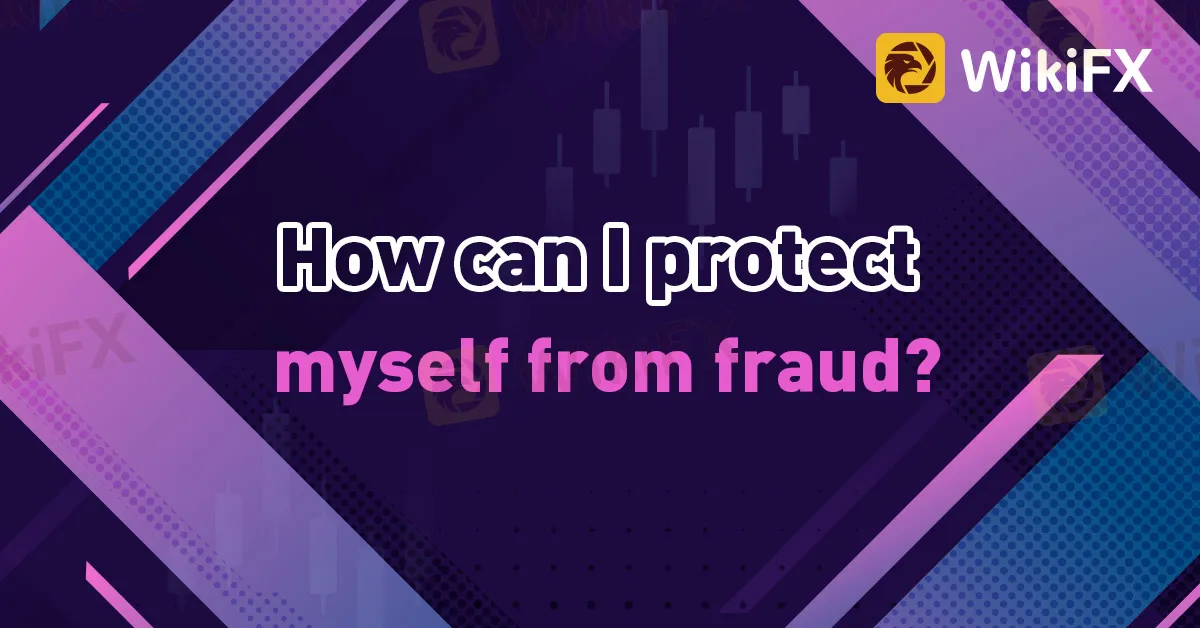简体中文
繁體中文
English
Pусский
日本語
ภาษาไทย
Tiếng Việt
Bahasa Indonesia
Español
हिन्दी
Filippiiniläinen
Français
Deutsch
Português
Türkçe
한국어
العربية
How can I protect myself from fraud?
Abstract:Numerous Forex-related scams target customers in South Africa, and we frequently receive emails from traders who are having trouble withdrawing funds from their accounts or are encountering other types of resistance from brokers whose only goal is to convince customers to deposit money before refusing to return it.

Numerous Forex-related scams target customers in South Africa, and we frequently receive emails from traders who are having trouble withdrawing funds from their accounts or are encountering other types of resistance from brokers whose only goal is to convince customers to deposit money before refusing to return it.
The finest resource for preventing forex frauds is the WikiFX app. WikiFX allows traders to rate and analyze forex brokers from all over the world. The program is available on both the Play Store and the App Store.
You can take certain actions to safeguard yourself.
Never give someone cash to do a transaction on your behalf. Anyone who makes investments on your behalf without a license from the Financial Services Conduct Authority is breaking the law in South Africa (FSCA).
Never transmit money to someone you meet on social media; according to our study, Facebook and Instagram are the origin of more than 50% of forex frauds.
Never believe a broker or anybody promising assured results. Profits are never guaranteed in high-risk speculation like forex trading.
Always verify a broker's regulatory status. Brokers that are subject to regulation must post their license numbers on their websites.
Once you have a broker's FSP or license number, you can check with the regulator to determine if it is valid. All licensed Financial Services Providers are listed on the FSCA's database in South Africa (FSPs). You can also examine the FSCA's register of all licensed Over-the-Counter Derivative Providers, which lists all South African-based Forex brokers who are required to obtain an ODP license as of 2021. (ODPs).
If your broker is not situated in South Africa, other important authorities with searchable registers include the FCA in the UK, ASIC in Australia, and CySEC in Europe.
What should I do if I believe I was defrauded?
The first thing you should do if you think you've been duped by a broker is get in touch with your local authority and file a complaint. You can get in touch with the FSCA in South Africa here. You can also get in touch with the FAIS Ombudsman using this page if your complaint involves a licensed South African broker.

Disclaimer:
The views in this article only represent the author's personal views, and do not constitute investment advice on this platform. This platform does not guarantee the accuracy, completeness and timeliness of the information in the article, and will not be liable for any loss caused by the use of or reliance on the information in the article.
Read more

The Most Effective Technical Indicators for Forex Trading
Master Forex trading with the most effective technical indicators like RSI, MACD, and Bollinger Bands to spot trends and boost profits in 2025.

Pepperstone Adds 79 Stocks to 24-Hour US Share CFDs
Pepperstone expands 24-hour US share CFDs, adding 79 stocks like Tesla and Nvidia, meeting demand for after-hours trading opportunities.

Top Profitable Forex Trading Strategies for New Traders
Know profitable Forex strategies for beginners, including risk management tips, best currency pairs, technical analysis tools, and timeframe selection.
JustMarkets Review 2025: Live & Demo Accounts, Withdrawal to Explore
Established in 2012, JustMarkets (Formerly JustForex) is an online forex broker based in Cyprus and serves clients in over 160 countries. Featuring a low entry barrier, a 50% deposit bonus, and robust trading platforms -MT4 and MT5, JustMarkets has gained great popularity among retail investors in recent years. JustMarkets allows traders to trade over 260 CFD-based instruments, which is not an extensive range, yet on leverage up to 3000:1 to increase trading flexibility. To enhance the trading experience, both MT4 and MT5 are provided, along with JustMarkets Trading App, MetaTrader Mobile App, and MetaTrader WebTerminal. JustMarkets offers a 50% deposit bonus to boost traders' confidence. Opening an account is a fully online process, typically completed within one day.
WikiFX Broker
Latest News
Brazilian Man Charged in $290 Million Crypto Ponzi Scheme Affecting 126,000 Investors
Become a Full-Time FX Trader in 6 Simple Steps
ATFX Enhances Trading Platform with BlackArrow Integration
Decade-Long FX Scheme Unravels: Victims Lose Over RM48 Mil
What Can Expert Advisors Offer and Risk in Forex Trading?
5 Steps to Empower Investors' Trading
How to Find the Perfect Broker for Your Trading Journey?
The Top 5 Hidden Dangers of AI in Forex and Crypto Trading
The Most Effective Technical Indicators for Forex Trading
Indian National Scams Rs. 600 Crore with Fake Crypto Website
Currency Calculator







